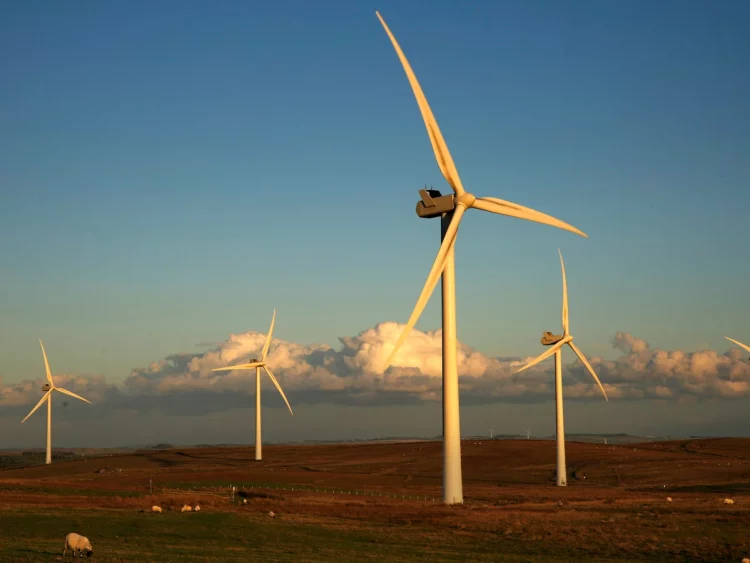In a world grappling with climate change, the notion of carbon capture technologies transforming into the “new oil” might seem both audacious and inevitable. The idea invites both skepticism and excitement, combining the urgency of environmental preservation with the allure of a game-changing global commodity. But what would it mean for our economies, industries, and society if carbon capture technology became a major driver of the global economy? To explore this possibility, let’s dive deep into the science, economics, and implications of such a future.
The Rise of Carbon Capture
Carbon capture and storage (CCS) involves capturing carbon dioxide (CO₂) emissions from large-scale industrial sources such as power plants and refineries and then storing it underground or repurposing it for other uses. While still in its developmental stages, the technology has already shown promise in mitigating the effects of climate change by preventing CO₂ from being released into the atmosphere.
Carbon capture differs from the traditional fossil fuel model, but its potential is enormous. If it becomes widespread, the demand for CO₂ storage capacity and the technologies associated with it could rival that of oil extraction, creating a new “oil economy” in the process. But how did we arrive at this juncture?
The Energy Crisis and Climate Change: A Perfect Storm
In the early 21st century, humanity faced a dual crisis: an overreliance on fossil fuels, which was driving global warming, and the urgent need for renewable energy sources. The narrative of energy production and consumption shifted as the realities of climate change became increasingly evident. Amid rising global temperatures, melting ice caps, and extreme weather events, the push for reducing emissions accelerated.
Despite a growing demand for cleaner energy, industries still rely heavily on fossil fuels. Carbon capture technology offers a compromise: it allows industries to continue operating while mitigating harmful emissions. This presents a tantalizing solution for maintaining global energy needs while addressing climate concerns. However, the scalability of carbon capture is crucial. If we can overcome technological and economic barriers, we might witness a paradigm shift where carbon, rather than fossil fuels, becomes the focal point of energy and industrial growth.
The Carbon Economy: A New Paradigm
What if carbon capture technology could grow into an entirely new industry, one that could rival or even surpass oil in terms of global economic impact? For this to happen, several key developments must occur.
1. The Economics of Carbon Capture

In many ways, the success of carbon capture hinges on its cost-effectiveness. Presently, CCS technologies are expensive to deploy, particularly in terms of capturing, transporting, and storing CO₂. While the potential for profit exists, it’s largely tied to scale and efficiency. The real question is: Can CCS technology be mass-produced and become as ubiquitous as oil drilling?
The future of CCS will likely depend on the economic model developed around it. If CO₂ capture becomes an essential component of the global economy, governments could introduce policies such as carbon taxes, cap-and-trade systems, or tax incentives to promote the technology. Moreover, large-scale operations could involve the creation of carbon markets, where CO₂ is bought and sold as a commodity. This would transform CO₂ from a waste product into a valuable asset.
2. Carbon as a Commodity
Just as oil is a key driver of the global economy, CO₂ could evolve into a tradable resource. Consider how oil is extracted, refined, and then sold as a commodity in various markets. Similarly, CO₂ could be captured, stored, or converted into usable products, such as synthetic fuels, carbon-based materials, or even food. In the future, carbon might be extracted from the atmosphere and “upcycled” into products with value, potentially even creating an entirely new industry of carbon-based manufacturing.
Countries or corporations that control the most efficient carbon capture technologies could become the new “oil barons.” Those who can profitably capture and store CO₂ or create valuable products from it could dominate the market in ways similar to the role oil companies play today.
3. Geopolitical Implications
A shift from oil to carbon capture as the new global economic driver could dramatically alter international relations. Nations that have historically been reliant on fossil fuels could find themselves at a crossroads. Oil-rich countries may need to pivot their economies towards CCS technologies or face a future where their resources are no longer as vital. Conversely, nations that have invested early in carbon capture technologies could emerge as energy leaders.
The geopolitical landscape might evolve in unexpected ways. For example, regions with vast underground storage potential could become the new focal points of economic power. Similarly, countries investing in carbon capture research and infrastructure may find themselves dominating the clean energy space, as carbon capture technology advances.
Technological Advancements and Opportunities
While the idea of carbon capture becoming a global commodity is enticing, we must acknowledge that the technology is still evolving. Several challenges remain:
1. Efficiency and Scalability
The current rate of CO₂ capture is insufficient to meet global climate goals. For CCS to truly become the new oil, it needs to be scalable and capable of capturing vast amounts of CO₂. Technological innovations in the efficiency of CO₂ capture, transportation, and storage will play a crucial role in determining whether carbon capture can be deployed on a global scale.
2. Storage Capacity
Once carbon is captured, it must be stored securely. Deep geological formations have been identified as one of the safest ways to store CO₂, but large-scale storage capacity is limited. Finding and securing vast underground reservoirs to store billions of tons of CO₂ could become one of the most significant challenges for the carbon capture industry.
3. Carbon Utilization
Another exciting possibility lies in the use of captured CO₂. If scientists can develop economically viable ways to turn CO₂ into valuable products like synthetic fuels, plastics, or even building materials, the economic incentive to capture and store carbon will increase dramatically. This is known as carbon utilization or carbon recycling.
The prospect of transforming CO₂ into a raw material for new products could create an entirely new sector of the global economy. Companies that figure out how to “upcycle” carbon into useful goods will hold a significant advantage in the market.
Carbon Capture as a Catalyst for Innovation
What if carbon capture becomes the spark for broader technological and industrial innovation? The push to develop large-scale CCS solutions could lead to advancements in a wide range of fields:
1. Energy Storage and Transportation

To facilitate the storage and transportation of CO₂, new infrastructure solutions will be necessary. The development of pipelines and storage facilities for CO₂ could mirror the oil industry’s infrastructure, but with unique challenges in terms of environmental safety and scale. New materials and technologies to improve the efficiency of CO₂ transportation could emerge from this process, benefiting not only carbon capture but also energy storage and other sectors.
2. Green Manufacturing
The desire to reduce emissions while maintaining industrial output could foster new forms of green manufacturing. From renewable energy-powered factories to closed-loop systems that capture and reuse emissions, the future of carbon-based industries could look drastically different. In this context, carbon capture could be part of a broader movement toward sustainable, low-carbon manufacturing processes.
3. Bioengineering and Artificial Intelligence
AI and bioengineering could play pivotal roles in improving the efficiency of carbon capture. For example, microorganisms that absorb CO₂ could be genetically engineered to enhance their natural ability to capture and store carbon. AI models might optimize the process of CO₂ capture and storage, predicting the most efficient methods based on real-time data.
The Risks and Ethical Considerations
While the potential for carbon capture is immense, it is not without risks and ethical concerns.
1. Environmental Impact
While carbon capture technology can mitigate the effects of climate change, it doesn’t eliminate the root cause: fossil fuel consumption. Over-reliance on CCS could delay the transition to renewable energy sources and keep the world tethered to carbon-intensive industries.
2. Equity and Access
The benefits of carbon capture could be unevenly distributed. Wealthier nations and corporations might dominate the market, leaving poorer countries behind. Access to the technology, and the ability to profit from it, could create new inequalities in the global energy landscape.
3. Technological Overconfidence
Another risk lies in the overconfidence that carbon capture will be the solution to all our climate woes. If carbon capture becomes seen as a “silver bullet,” it might detract from the urgent need to reduce emissions at their source. It’s important that carbon capture serves as a complement to, not a replacement for, widespread decarbonization efforts.
Conclusion: A Future Beyond Fossil Fuels?
What if carbon capture truly became the new oil? It could usher in a new era of global economic transformation, shifting the focus from fossil fuels to CO₂ as a central commodity. But this potential future is not without challenges. Technological, economic, and geopolitical hurdles must be overcome to realize the vision of a carbon-based economy. Whether carbon capture becomes a global economic powerhouse or a niche solution for specific industries remains to be seen. However, the very idea of it forces us to confront new questions about our energy future and the role that technology will play in shaping it.
As we stand on the brink of this potential transformation, one thing is clear: the way we think about energy, carbon, and sustainability is undergoing a profound change. Whether we succeed in creating the new oil from CO₂ depends not only on innovation but on how we choose to adapt, invest, and think about the world’s future.











































Discussion about this post